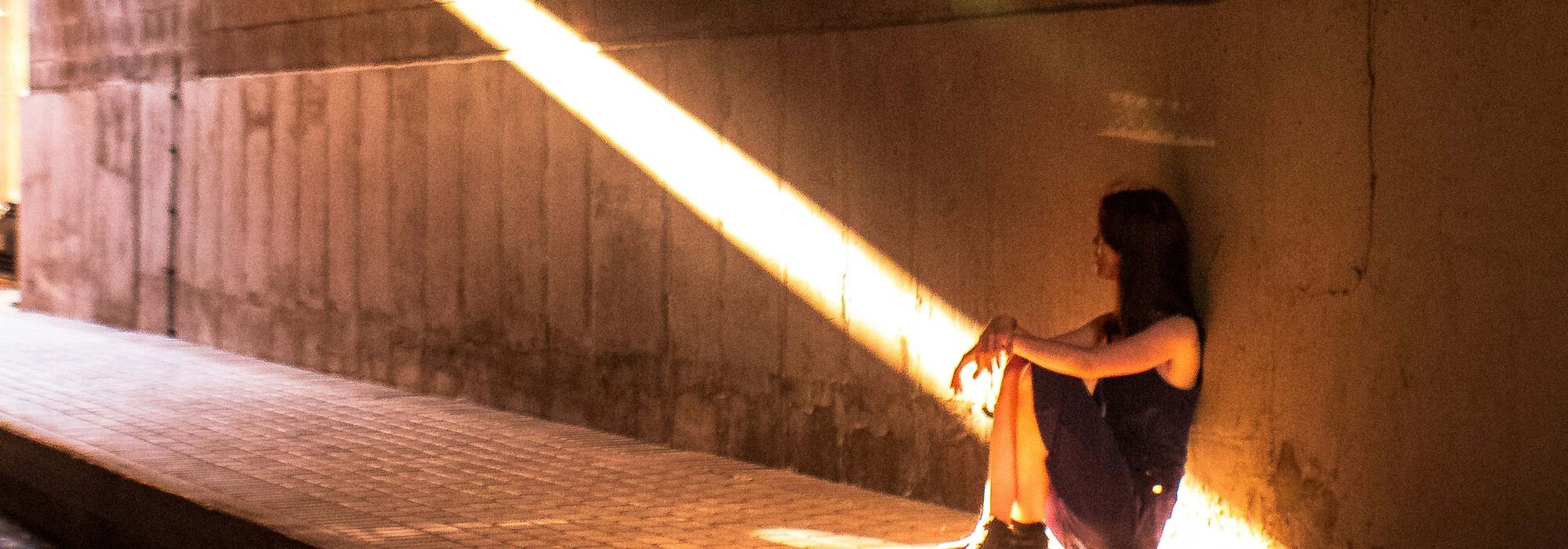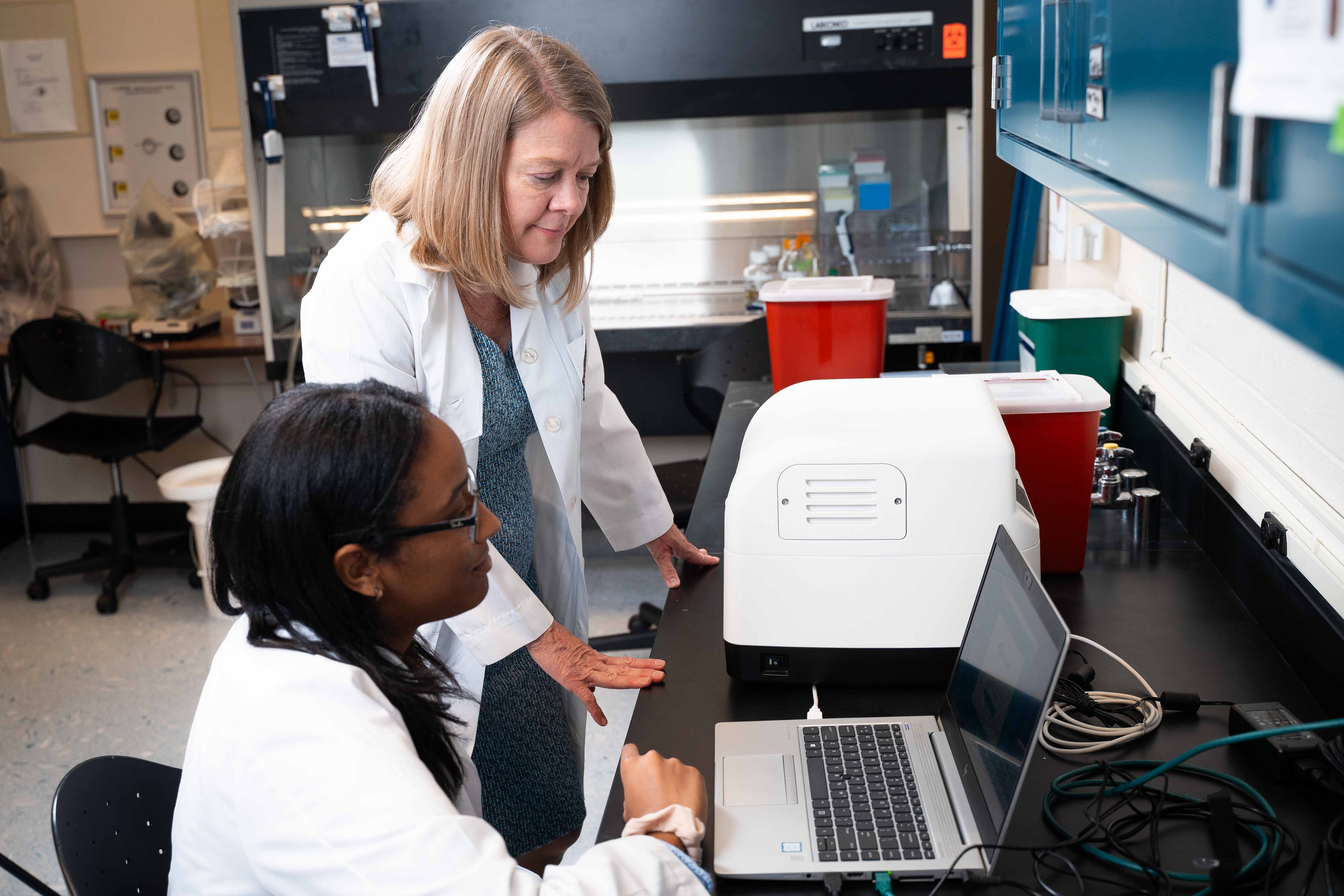
Connecting Young People in Crisis to Health and Hope
by Melissa L. Weber
When Jodi Ford, PhD, RN, FAAN, came to The Ohio State University College of Nursing 16 years ago, she brought experience as a pediatric nurse practitioner, a passion for adolescents and young adults, a dedication to addressing public health issues and a research program that examined how neighborhoods influence health.
Ford has been examining the significant increase in mental health struggles and higher rates of suicide in young people under age 25. She also studies the ways living with racism or in neighborhoods with high levels of poverty and violence can impact health outcomes.
“I’m especially interested in how these adverse social conditions affect stress and the mental health of adolescents and young adults,” Ford said.
She has taken those interests and partnered with an interdisciplinary team across Ohio State to study how to help young people overcome homelessness, avoid drug addiction and learn problem-solving skills to assist them in becoming healthy and engaged adults.

Her current project is called “Building Social and Structural Connections for the Prevention of Opioid Use Disorder among Youth Experiencing Homelessness: A Randomized, Controlled Trial Examining Biopsychosocial Mechanisms.” The study is being conducted at Star House, Central Ohio’s only 24/7/365 drop-in center. Star House provides young people experiencing homelessness with immediate access to food, clothing, hygiene items, laundry facilities, showers and a safe place to be.
The project is funded by a five-year, $6.9 million grant from the National Institutes of Health/National Institute on Drug Abuse (NIH/NIDA) and its Helping to End Addiction Long-term (HEAL) initiative. The two principal investigators on the study are Ford, who also serves the College of Nursing as professor, director of the Stress Science Lab and interim director of the PhD program and Natasha Slesnick, PhD, distinguished professor and associate dean for research at Ohio State’s College of Education and Human Ecology and founder of Star House.
Ford’s and Slesnick’s research team also includes Professors Xin Feng, PhD, and Tansel Yilmaz, PhD, College of Education and Human Ecology; College of Arts and Sciences Distinguished Professor Christopher Browning, PhD, Department of Sociology; and Beth Boettner, PhD, a research scientist in the Institute for Population Research, College of Arts and Sciences.
“Like all youth, they need someone to help them when times are hard and also to celebrate their successes.”
– Jodi Ford
“The project is testing a combination of evidence-based interventions to see what’s most effective in preventing opioid use disorder and in improving health, as well as what is the most cost-effective,” Ford said. “In addition, we partnered with Star House and their therapists and case managers to have them implement the interventions so we can better understand their effectiveness in real-world conditions.”
The therapists and caseworkers at Star House are implementing multiple interventions, including substance use treatment and prevention programs. One of the interventions utilizes a strengths-based outreach advocacy (SOBA) model with a focus on increasing youths’ social connections as well as addressing their social needs, such as linking them to housing, employment and education, among others. In this model, the caseworker meets with the youth and helps them set their own goals, which helps them gain confidence. The caseworker provides extensive social support and is in frequent contact with the young person via text, phone and in person. In interviews to gather qualitative data, some young people in the program have said it’s the first time they felt like someone cared about them.
While resources and access to services such as housing, food, clothes and school are critical, social networks may be more important than previously realized.
“Like all youth, they need someone to help them when times are hard and also to celebrate their successes,” Ford said.
As part of the project, Ford is also collecting data to understand how the interventions impact biologic and psychological stress. “In our previous studies,” Ford said, “we found that exposure to adverse social conditions, such as poverty and violence, can alter how stress hormones work and also that these alterations can contribute to impaired mental health, such as depression.” In this study, Ford is collecting hair samples to measure the stress hormone cortisol and blood samples to measure the function of the immune system to examine how they respond to adversity and to positive factors, such as increasing social connections through the intervention.
Sometimes the work can be emotionally challenging, but Ford sees many people working to help youth in need. “Lots of people in the community donate time, money and other resources,” she said. “There are people who care and want to help. Knowing there are other people who want to help, helps me and our team—we are a community and there is strength in numbers.”
In this Issue
- DNE: The Change Agents
- Clinician Well-Being Summit
- From Lab to Life
- Expanding Community Care
- Reaching out to Taiwan
- Buckeye Inspiration: David Hiatt
- Brain Health Fair
- Grants Roundup
- Student Life: Isabelle Meehan
- Connecting Young People in Crisis to Health and Hope
- Alumni in Action: Jeri Milstead
- Putting Our Heads Together for Brain Health
